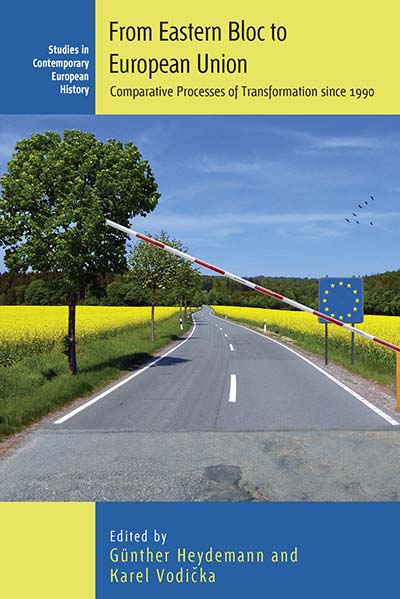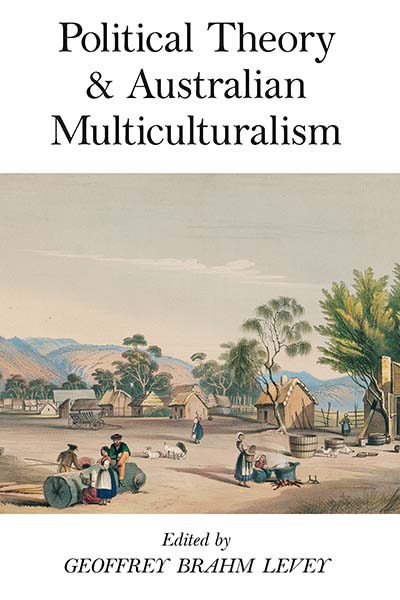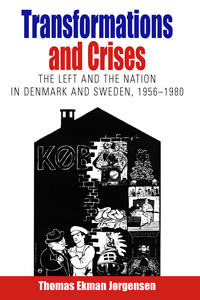
Series
Volume 22
Studies in Contemporary European History
See Related
History JournalsEmail Newsletters
Sign up for our email newsletters to get customized updates on new Berghahn publications.
From Eastern Bloc to European Union
Comparative Processes of Transformation since 1990
Edited by Günther Heydemann and Karel Vodička
Translated from the German
416 pages, 56 figures, bibliog., index
ISBN 978-1-78533-317-0 $150.00/£115.00 / Hb / Published (October 2017)
ISBN 978-1-78920-821-4 $39.95/£31.95 / Pb / Published (May 2020)
eISBN 978-1-80758-875-5 eBook
Reviews
“Heydemann and Vodička have edited a praiseworthy and fascinating anthology that makes up an important read for academic teaching on the topic and basically for anybody interested in the state of research on this subject….It is their comparatist view that makes the book a commendable publication. In a time, when the ‘West’ and the ‘East’ in the EU seem to increasingly take different paths into the future, this anthology is a stimulating read. Highlighting similarities but also differences on the varying roads these countries took since 1990 it does answer some fundamental questions. In the context of the current new dynamics in European Studies and European integration history, this volume has to be seen as one that nuances our view on EU history by the means of comparison.” • European History Quarterly
“The volume should serve as a valuable reference for undergraduates and those with a general interest in post-socialist Central and Eastern Europe. Political scientists may find in the volume a helpfully assembled pool of data for comparative analyses and a textbook Popperian analysis to share with their students. Geographers will benefit from an overview of how the relationship between center and periphery is redefined by the transition process. Overall, the volume achieves a fine balance in the discussion of the political, economic, and social fac tors conditioning post-socialist transition to democracy, as well as the interrelation between them.” • Eurasian Geography and Economics
“The strength of the book lies in its scope. Furthermore, the individual chapters are well-structured, so that a reader interested only in specific aspects can find these easily.” • Europe-Asia Studies
Description
More than 25 years after the fall of the Soviet Union, European integration remains a work in progress, especially in those Eastern European nations most dramatically reshaped by democratization and economic liberalization. This volume assembles detailed, empirically grounded studies of eleven states—Estonia, Latvia, Lithuania, Poland, the Czech Republic, Slovakia, Hungary, Romania, Bulgaria, Slovenia, and the former East Germany—that went on to join the European Union. Each chapter analyzes the political, economic, and social transformations that have taken place in these nations, using a comparative approach to identify structural similarities and assess outcomes relative to one another as well as the rest of the EU.
Günther Heydemann is the Chair for Modern and Contemporary History at the University of Leipzig and Director of the Hannah Arendt Institute for Research on Totalitarianism at the Technical University of Dresden. He has taught in the United States, Italy, Russia, and Tunisia. His most recent publication is Sachsen und der Nationalsozialismus, coedited with Jan Erik Schulte and Francesca Weil (2014).
Karel Vodička is a Researcher at the Hannah Arendt Institute for Research on Totalitarianism at the Technical University of Dresden. His publications include Zündfunke aus Prag: Wie der Mut zur Freiheit die Geschichte veränderte (2014).



